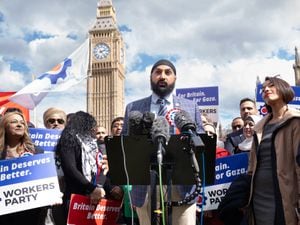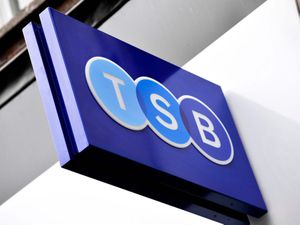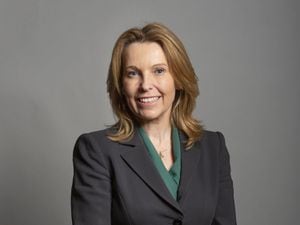Chancellor expected to U-turn on scrapping 45p tax rate
Kwasi Kwarteng’s mini-budget triggered turmoil in the City and was criticised by the International Monetary Fund.
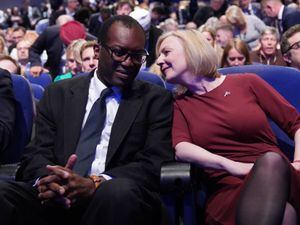
Chancellor Kwasi Kwarteng is expected to make an astonishing U-turn over the abolition of the top rate of income tax for the highest earners.
Mr Kwarteng is believed to be preparing to issue a statement on Monday, climbing down over the plan to axe the 45% rate for earnings over £150,000 and pay for it by borrowing.
Liz Truss and Mr Kwarteng had been under pressure, including from senior Tory MPs, to back down on the measure announced in the mini-budget on September 23.
But instead they doubled down on it despite the financial turmoil triggered by the package, with the Prime Minister defending it as recently as Sunday.
They had even resisted backing down in the face of criticism from the International Monetary Fund and a £65 billion emergency intervention by the Bank of England to restore order.
Overnight, Grant Shapps joined his former Cabinet minister colleague Michael Gove in a growing rebellion to criticise the plans during a cost-of-living crisis.
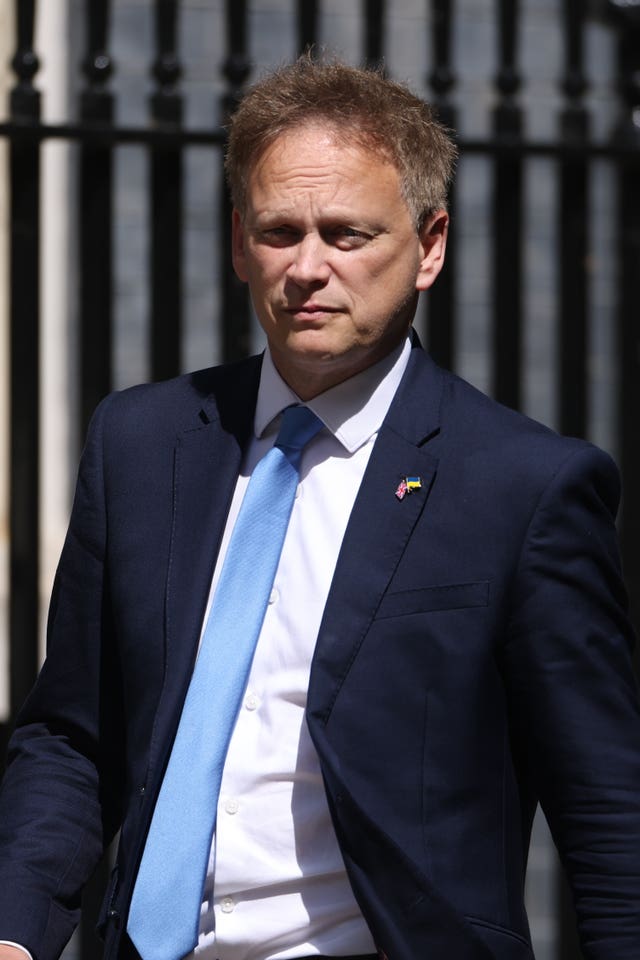
Mr Kwarteng had been preparing to tell the Conservative Party conference in Birmingham that they must “stay the course” and back their tax plans.
And he had been set to insist in a speech now likely to be overhauled that his measures are vital to boost growth and avoid a “slow, managed decline”.
In a possible hint of what was to come, Ms Truss was criticised for singling Mr Kwarteng out as responsible for the tax cut on Sunday, saying “it was a decision the Chancellor made” rather than one debated by the entire Cabinet.
The U-turn will be seen as a massive blow to their authority, coming a little over a week after they were announced and a month into Ms Truss’s premiership.
Spending around £2 billion annually on a tax cut for top earners while scrapping the cap on bankers’ bonuses was seen as politically toxic while millions face the squeeze of the cost-of-living crisis.
Ms Truss has also refused to commit to plans to increase benefits payments in line with inflation, in what would deliver the nation’s poorest a real-terms cuts.
On Sunday, Mr Gove toured fringe events at the conference to give his criticism of the plan, calling it “not Conservative” and hinting he could vote against the measure in the Commons.
Mr Shapps, a former transport secretary, used a Times column to say “this is not the time to be making big giveaways to those who need them least” because “when pain is around, pain must be shared”.
“This bolt-from-the-blue abolition of the higher rate, compounded by the lack in communication that the PM acknowledges, is an unforced error that is harming the Government’s economic credibility,” he said.
Damian Green, a former deputy prime minister, warned that he Tories will lose the next election if “we end up painting ourselves as the party of the rich”.
Tory ex-chancellor George Osborne said it was “touch and go whether the Chancellor can survive” the fallout, telling the Andrew Neil Show it would be “curtains” for Mr Kwarteng if his speech on Monday went badly.
Andrew Bowie, who was parliamentary private secretary to Theresa May when she was in No 10, agreed with Mr Gove that unfunded tax cuts are not Conservative.
Former minister Maria Caulfield said: “I can’t support the 45p tax removal when nurses are struggling to pay their bills.”
The Telegraph reported that a vote on the 45% measure would not be held until after the November 23 financial statement which will set out how the party aims to bring the public finances under control.

